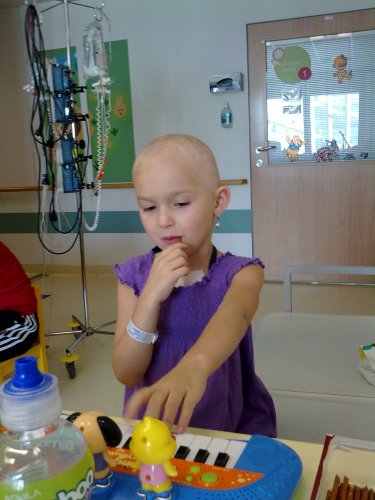Treatment and its complications
 Cancer treatment is an interdisciplinary process that involves a number of doctors and health professionals working to cure a child with a cancer.
Cancer treatment is an interdisciplinary process that involves a number of doctors and health professionals working to cure a child with a cancer.
The treatment lasts on average 1 year. Depending on the type of disease, its stage and other indicators, the patient is included in the appropriate treatment scheme (treatment plan, therapeutic plan).
In the following text, we will introduce you to the main methods of anticancer treatment and the complications that may accompany the treatment.
- The administration of drugs with anti-tumor effect is called chemotherapy.
- Killing of tumor cells in the form of radiation on the tumor area represents radiation.
- The transfer of hematopoietic cells not only in children with high-risk leukemia is the so-called transplantation.
- An integral part of anticancer treatment is the treatment of complications or supportive care.
Of course, anticancer treatments also include tumor surgery, which in some cases is the only and fully adequate treatment.
- Care actively focused on the patient's quality of life, as the disease has progressed to a stage where it is not possible for us to cure it, is called palliative treatment.
- Therapy that does not include standard medical procedures is usually called alternative treatment.

